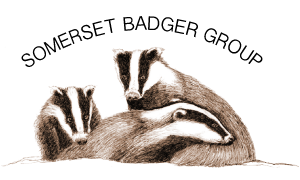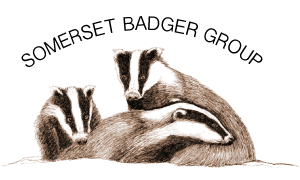Somerset Badger Group’s Response to the supplementary cull consultation 2024
Opportunity to Comment on Supplementary Badger Disease Control Licence applications or expressions of interests
https://consult.defra.gov.uk/natural-england/b9e6e073/consultation/subpage.2017-07-13.7175254760/
Response ID is ANON-XK33-69FN-C
B4. If a Supplementary Badger Disease Control Licence was issued do you feel this would affect your business/livelihood?
Somerset Badger Group was formed 35 years ago. We are a small not-for-profit volunteer organisation dedicated to conserving, studying, protecting, and recording badgers and to furthering the public’s understanding of them. Every year we receive over 300 calls to our 24/7 helpline and several hundred emails from members of the public with concerns about badgers. It is a scientifically proven fact that culling causes perturbation which potentially leads to additional road traffic accidents. During the culls, contact from concerned members of the public increases, particularly relating to dead badgers being found, questing whether they have been culled or illegally killed.
During the culls we liaise closely with the Police and the RSPCA when badgers are found in suspicious circumstances. This requires a significant amount of effort and commitment both in time and expense and places increased physical and emotional strain on our volunteers, many of whom also work full time.
Since 2012 our group has been delivering low-cost badger vaccination to farmers and landowners in the Southwest and we have 3 Government Approved Vaccination Trainers who have trained 25 Lay Vaccinators and Cage Trappers from different parts of England to support Defra’s badger vaccination programme. Where intensive culling and then supplementary culling has taken place in an adjacent area to vaccinated land, we saw a significant reduction in the number of badgers being trapped and then vaccinated year on year. For example, on a 3 Km2 farm on Exmoor from 2012-2014 we vaccinated on average 39 badgers. By 2018 only 6 badgers were vaccinated, and in 2023 as part of a Defra Vaccination Programme, only 2 badgers were vaccinated on this farm. This was despite a 250m no cull zone around the farm. A huge amount of effort goes into vaccinating badgers, and this is subsidised by public donation, contributions from farmers and landowners and by our Lay Vaccinators, Cage Trappers and other volunteers giving their time for free. To then loose a significant number of vaccinated badgers because of adjacent culling, is devastating to those farmers and landowners, members of the public who donated their money, and our Vaccination Team. We will be continuing to vaccinate badgers in Somerset this year and we have therefore grave concerns about Supplementary Cull Licences being granted.
B6. Please add any additional comments you wish to make with regard to this application that are not in relation to affecting your business/livelihood. (Do not use this comment box to pass comment on the actual policy or its criteria please contact Defra directly Defra.helpline@defra.gov.uk).
We continue to be fully supportive of badger vaccination as a more effective way of reducing the spread of bTB from cattle to badgers and badgers to cattle, until the long-awaited cattle vaccine is available to farmers.
We understand that at the National Advisory Service Conference in November 2023 that several speakers stated the the majority of bTB infections are from cattle to cattle and that what cattle and dairy farmers required was the deployment of the cattle vaccine, improved biosecurity, and more accurate testing of cattle.
In the Vet Record Volume 193, Issue 11, p.454-455 Dr Dick Sibley, Veterinary Surgeon BVSc HonFRCVS, who last year was awarded the British Veterinary Association’s most prestigious advancement of veterinary scientific awards (the Dalrymple-Champneys Cup and Medal) , stated ‘The involvement of badgers in this transmission is still unproven. What is known from publicly available Defra figures (Defra. Tuberculosis (TB) in cattle in Great Britain. 2023. https://bit.ly/49FvgfI (accessed 22 November 2023), is that in the three counties which contribute over one-third of all bTB incidents in England, and where badger removal operations have been the most intense for the last five years, the number of herds that had lost their official TB free status in the year to June 2023, actually increased from the previous year. The effect of the mass killing of hundreds of thousands of badgers has been disappointing, to say the least.’
We believe cattle and badger vaccination rather than continued intensive or supplementary culling is key to achieving effective controls over bTB in cattle.




